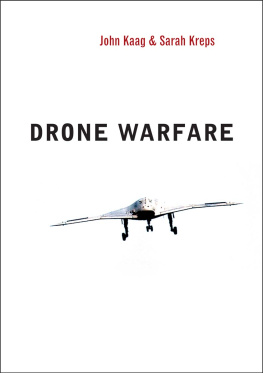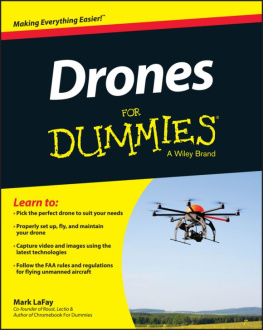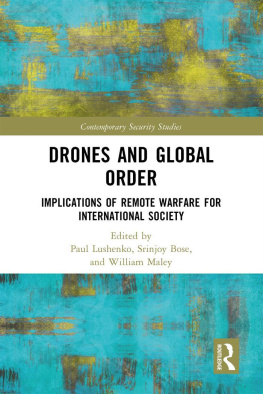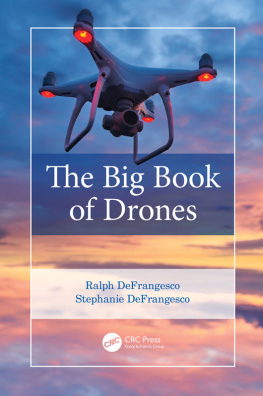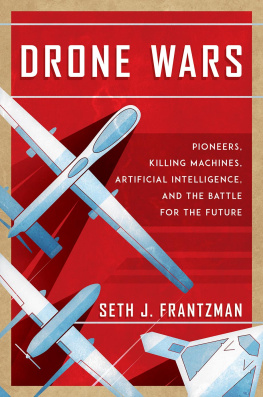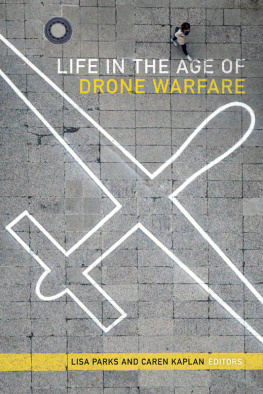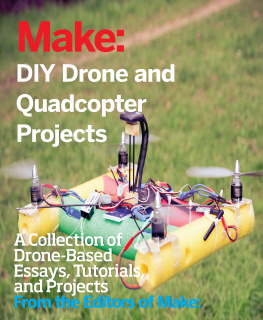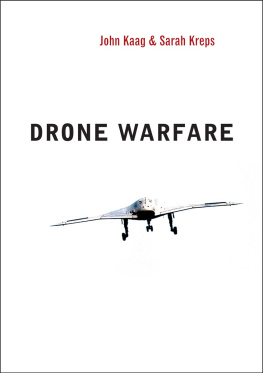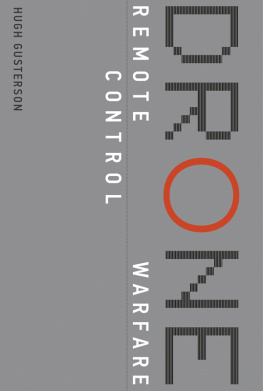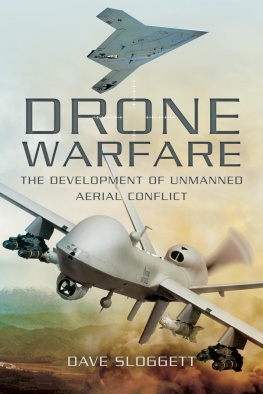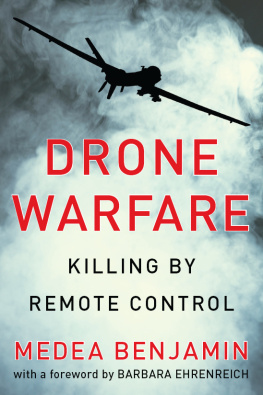Drone Warfare
War and Conflict in the Modern World
L. Brock, H. Holm, G. Srensen & M. Stohl, Fragile States
Feargal Cochrane, Ending Wars
Paul Diehl and Alexandru Balas, Peace Operations, second edn
Matthew Evangelista, Law, Ethics and the War on Terror
J. Michael Grieg and Paul Diehl, International Mediation
Janie Leatherman, Sexual Violence and Armed Conflict
Andrew Mumford, Proxy Warfare
Dennis Sandole, Peacebuilding
Eric Shibuya, Demobilizing Irregular Forces
Timothy Sisk, Statebuilding
Rachel Stohl & Suzette Grillot, The International Arms Trade
Paul Viotti, American Foreign Policy
Thomas G. Weiss, Humanitarian Intervention, second edn
Copyright John Kaag and Sarah Kreps 2014
The right of John Kaag and Sarah Kreps to be identified as Authors of this Work has been asserted in accordance with the UK Copyright, Designs and Patents Act 1988.
First published in 2014 by Polity Press
Polity Press
65 Bridge Street
Cambridge CB2 1UR, UK
Polity Press
350 Main Street
Malden, MA 02148, USA
All rights reserved. Except for the quotation of short passages for the purpose of criticism and review, no part of this publication may be reproduced, stored in a retrieval system, or transmitted, in any form or by any means, electronic, mechanical, photocopying, recording or otherwise, without the prior permission of the publisher.
ISBN-13: 978-0-7456-8535-9
A catalogue record for this book is available from the British Library.
The publisher has used its best endeavours to ensure that the URLs for external websites referred to in this book are correct and active at the time of going to press. However, the publisher has no responsibility for the websites and can make no guarantee that a site will remain live or that the content is or will remain appropriate.
Every effort has been made to trace all copyright holders, but if any have been inadvertently overlooked the publisher will be pleased to include any necessary credits in any subsequent reprint or edition.
For further information on Polity, visit our website: www.politybooks.com
Contents
Tables and Figures
T ABLES
F IGURES
Preface
In writing Drone Warfare, we hope to provide a comprehensive, timely, rigorous, accessible analysis of the use of combat drones in modern warfare. The books comprehensiveness required two scholars from very different fields philosophy and political science to work together on a single study. Its timeliness depended on working together quickly and carefully to identify the political, legal, and moral implications of this transformational technology. Its rigor meant that shortcuts were to be avoided. Its accessibility meant that certain shortcuts had to be taken.
In short, the writing of the book was immensely frustrating. So an obvious question remains: why did we endure this frustration?
For the last ten years, we watched, with growing alarm, a shift in military affairs that was defined by the use of semi-autonomous weapon systems. Our alarm was elicited not by the technology itself, but by the way that the research and development of this technology outpaced the studied consideration of its implications. These implications had nothing to do with technology and everything to do with human beings: the human beings using these unmanned technologies in asymmetric warfare and the human beings being targeted or harmed by them. In our machine era, it is tempting to think that difficult human judgments political, legal, and moral can be farmed out to bots that can do a better job than us. We should resist this temptation. Drone Warfare is a reminder that ), it is even more important to get a handle on the way that they should be used in the future. And this is why we happily faced the frustration of writing the rest of the book.
In truth, there are many other reasons that this book finally came to press and they have nothing to do with its authors. Much of what is elegant and accurate about this volume can be credited to a large number of individuals who assisted with the editing and revision of its various parts. We would like to thank David Blair, Robert Chesney, Neta Crawford, Janina Dill, Matthew Evangelista, Gustavo Flores-Macas, Carol Hay, Peter Katzenstein, Mary Ellen OConnell, David OHara, Jens Ohlin, Capt. Bill Parker, Scott Pratt, Klem Ryan, Judith Reppy, Bassam Romaya, Henry Shue, Colonel Rob Spalding, Geoff Wallace, Matthew Waxman, Micah Zenko, and, not least, we thank Kyle Ezzedine and Rebecca Friedman for valuable research assistance. We would especially like to thank Whitley Kaufman for his help in revising of the book.
In the case of Kaags contribution to this volume, much of the research was accomplished during a fellowship at the American Academy of Arts and Sciences. Kreps completed the manuscript while she was a fellow at the Council on Foreign Relations in New York. Members of these organizations have given daily feedback and encouragement in the course of the project.
Drone Warfare is the product of a long-standing collaboration between its authors. The ideas presented in this volume were first hatched in a number of articles in both peer-reviewed and public venues. This book presented us with the opportunity to unify our arguments into a single cohesive narrative about the reality and future of drone warfare. We are pragmatists and as pragmatists we believe that theory needs to impact practice. Writing for a wider public is not ancillary to our work as scholars, and short, self-contained articles are often the one way to effect real-world change. In many cases, our public writings on drone warfare have had real and immediate traction in policy debates. This being said, each argument, presented over the course of nearly four years, has been situated in a broader, systematic treatment of drones. In addition to presenting new arguments concerning drones, this volume gave us the opportunity to explain the way that our previous work on the subject over the last four years fits together and it is greater than the sum of its parts.
Practical, systematic, careful thinking is what is needed when it comes to drone warfare. At this point, we do not need better weapon systems. We need better judgment in using the ones at our disposal. There is a complex relationship between the politics, the law, and the morality of drone strikes and it is a relationship that remains largely overlooked in the current debates about modern asymmetric warfare. Understanding this relationship will not be easy. It will require consulting experts who seem to have nothing to do with military tactics: political theorists, applied psychologists, legal theorists, and the occasional ethicist. Drone Warfare is an initial attempt to begin this difficult debate.
CHAPTER ONE
Introduction: The Rise of Drones
In October 2009, then-Secretary of State Hillary Clinton traveled to Pakistan in support of the Obama Administrations efforts to convince Islamabad to crack down on terrorists. That question volleyed by a woman from the back of the audience perfectly encapsulates the moral, legal, and political ambiguities that prompted us to write this book.

